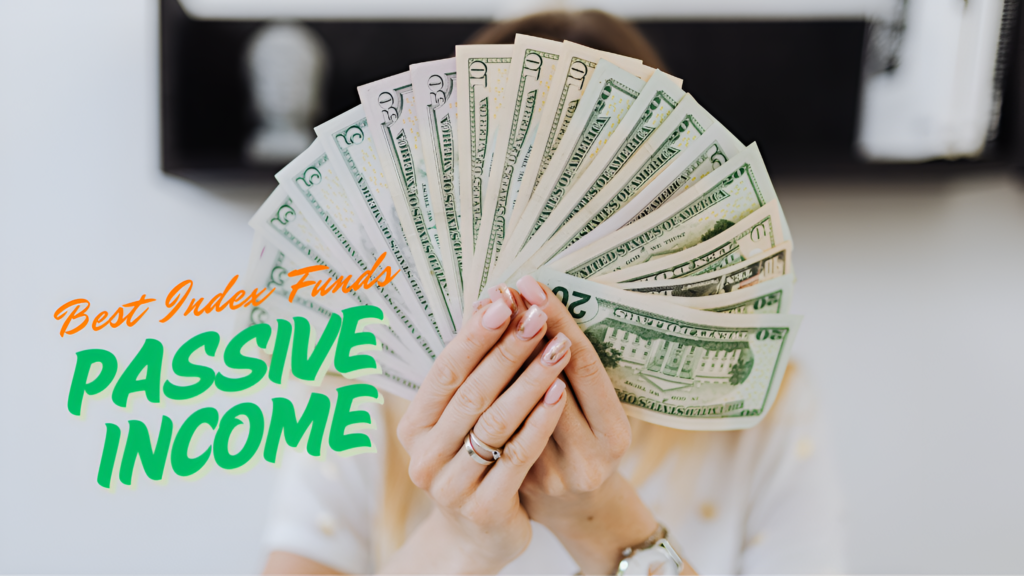Introduction
Investing in the best index funds is one of the most effective ways to build wealth and generate passive income. These funds track a specific market index, offering diversified exposure to a broad range of securities with minimal management fees. But with so many options available, what are the best index funds for passive income? Let’s explore the top index funds and how they can help you achieve financial freedom.
Why Choose Index Funds for Passive Income?
Index funds are ideal for passive income because they offer:
Low Fees – Unlike actively managed funds, index funds have lower expense ratios.
Diversification – Exposure to a wide range of stocks reduces risk.
Consistent Returns – Historically, index funds have outperformed most actively managed funds over the long term.
Hands-off Investing – Perfect for investors who prefer a “set and forget” approach.
Top 7 Best Index Funds for Passive Income
1. Vanguard S&P 500 ETF (VOO)
Expense Ratio: 0.03%
Dividend Yield: ~1.5%
Why It’s Great: Tracks the S&P 500, which includes 500 of the largest U.S. companies. Ideal for long-term growth and stable dividends.
2. Fidelity ZERO Large Cap Index Fund (FNILX)
Expense Ratio: 0.00%
Dividend Yield: ~1.3%
Why It’s Great: A zero-cost index fund that tracks large-cap U.S. stocks, making it an excellent choice for cost-conscious investors.
3. Schwab U.S. Dividend Equity ETF (SCHD)
Expense Ratio: 0.06%
Dividend Yield: ~3.6%
Why It’s Great: Focuses on high-dividend-paying stocks, providing a steady stream of passive income.
4. Vanguard Total Stock Market ETF (VTI)
Expense Ratio: 0.03%
Dividend Yield: ~1.3%
Why It’s Great: Offers exposure to the entire U.S. stock market, making it a diversified option for investors.
5. iShares Core High Dividend ETF (HDV)
Expense Ratio: 0.08%
Dividend Yield: ~4%
Why It’s Great: Invests in financially strong companies with high dividend yields, perfect for passive income seekers.
6. Vanguard Real Estate ETF (VNQ)
Expense Ratio: 0.12%
Dividend Yield: ~4.5%
Why It’s Great: Focuses on real estate investment trusts (REITs), offering exposure to the real estate sector and steady dividends.
7. iShares MSCI USA Min Vol Factor ETF (USMV)
Expense Ratio: 0.15%
Dividend Yield: ~1.6%
Why It’s Great: Aims for lower volatility while still providing solid returns, making it a great defensive investment option.
How to Choose the Best Index Fund for Passive Income?
When selecting an index fund, consider the following factors:
Expense Ratio – Lower fees mean higher returns over time.
Dividend Yield – Higher yields provide more passive income.
Risk Tolerance – Some funds are more volatile than others.
Diversification – Look for broad exposure across various sectors.
Investment Goals – Align your fund choice with long-term financial objectives.
How to Invest in Index Funds?
Investing in index funds is straightforward. Follow these steps:
Choose a Brokerage – Open an account with Vanguard, Fidelity, Schwab, or another brokerage.
Select Your Index Fund – Consider the best index funds listed above.
Determine Your Investment Amount – Decide how much to invest.
Make Your Purchase – Buy shares through your brokerage account.
Reinvest Dividends – Opt for automatic dividend reinvestment to maximize returns.
Benefits of Index Fund Investing for Passive Income
Compounded Growth – Reinvesting dividends helps grow your wealth exponentially.
Tax Efficiency – Index funds tend to have lower tax liabilities.
Less Time-Consuming – No need for active trading or market timing.
Reliable Returns – Historically, they provide consistent long-term gains.
Final Thoughts
The best index funds for passive income provide a combination of low fees, strong dividend yields, and diversified market exposure. Whether you’re looking for stability, growth, or high dividends, the funds mentioned above can help you build a strong portfolio. By investing in these funds and reinvesting dividends, you can create a steady stream of passive income and achieve long-term financial security.
FAQs
Q. Are index funds a good option for passive income?
- Yes, index funds offer a reliable way to earn passive income through dividends and long-term capital appreciation.
Q. How much money do I need to start investing in index funds?
- Many brokerages allow you to start with as little as $1, though some funds may require a minimum investment of $500–$3,000.
Q. Can I lose money investing in index funds?
- Yes, like all investments, index funds carry risk. However, they generally recover over time and provide stable long-term returns.


I cherish how your individuality shines through in your writing. It establishes an instant connection.
Your writing paints vivid pictures in my mind. I can easily visualize every aspect you portray.
Your writing style is excellent. I enjoy how you present information in a precise and concise.
I’m thankful for the demonstrations you provided; they made it easier to grasp.
Pingback: Best Ways to Save for Retirement in 2025